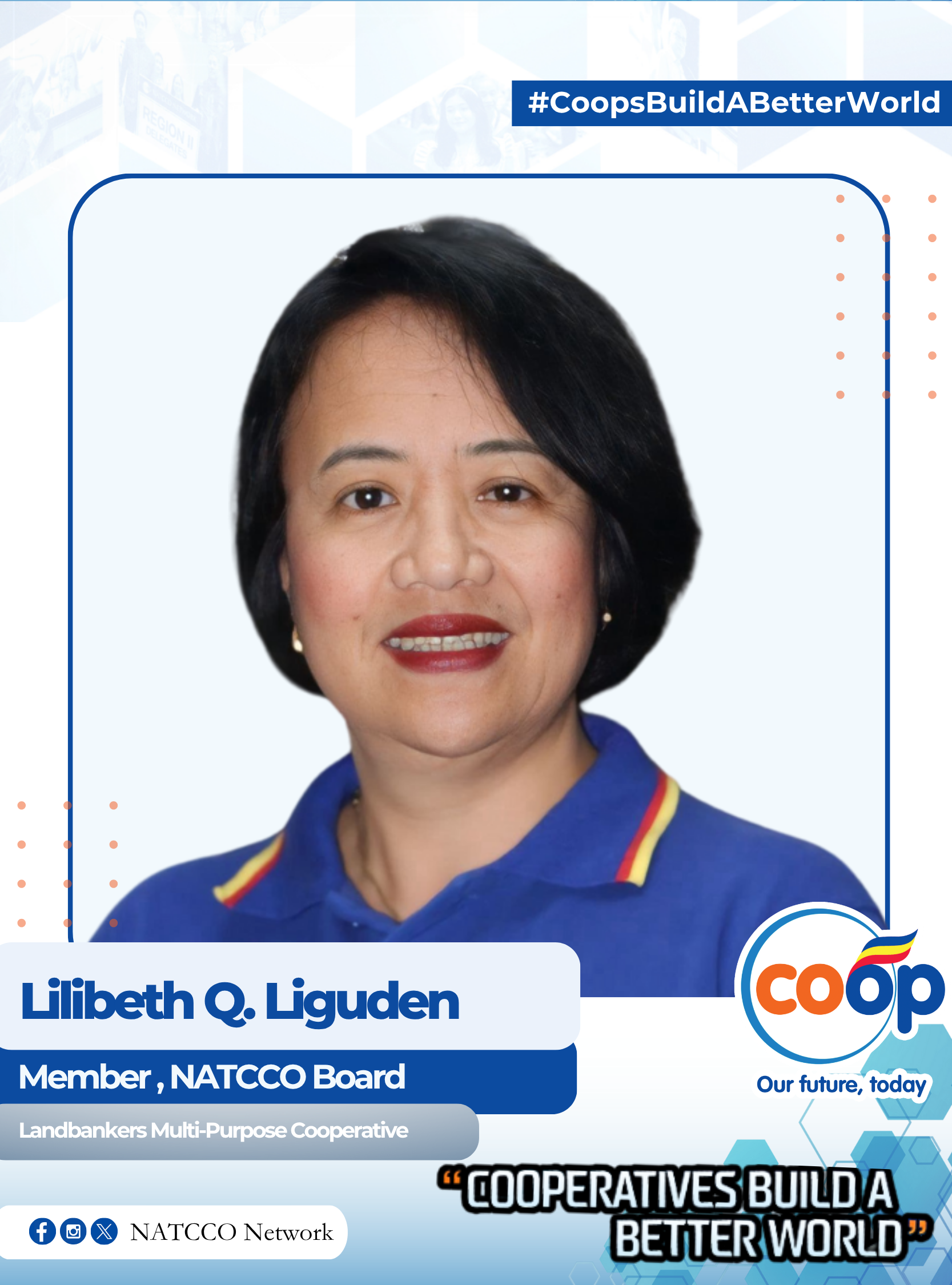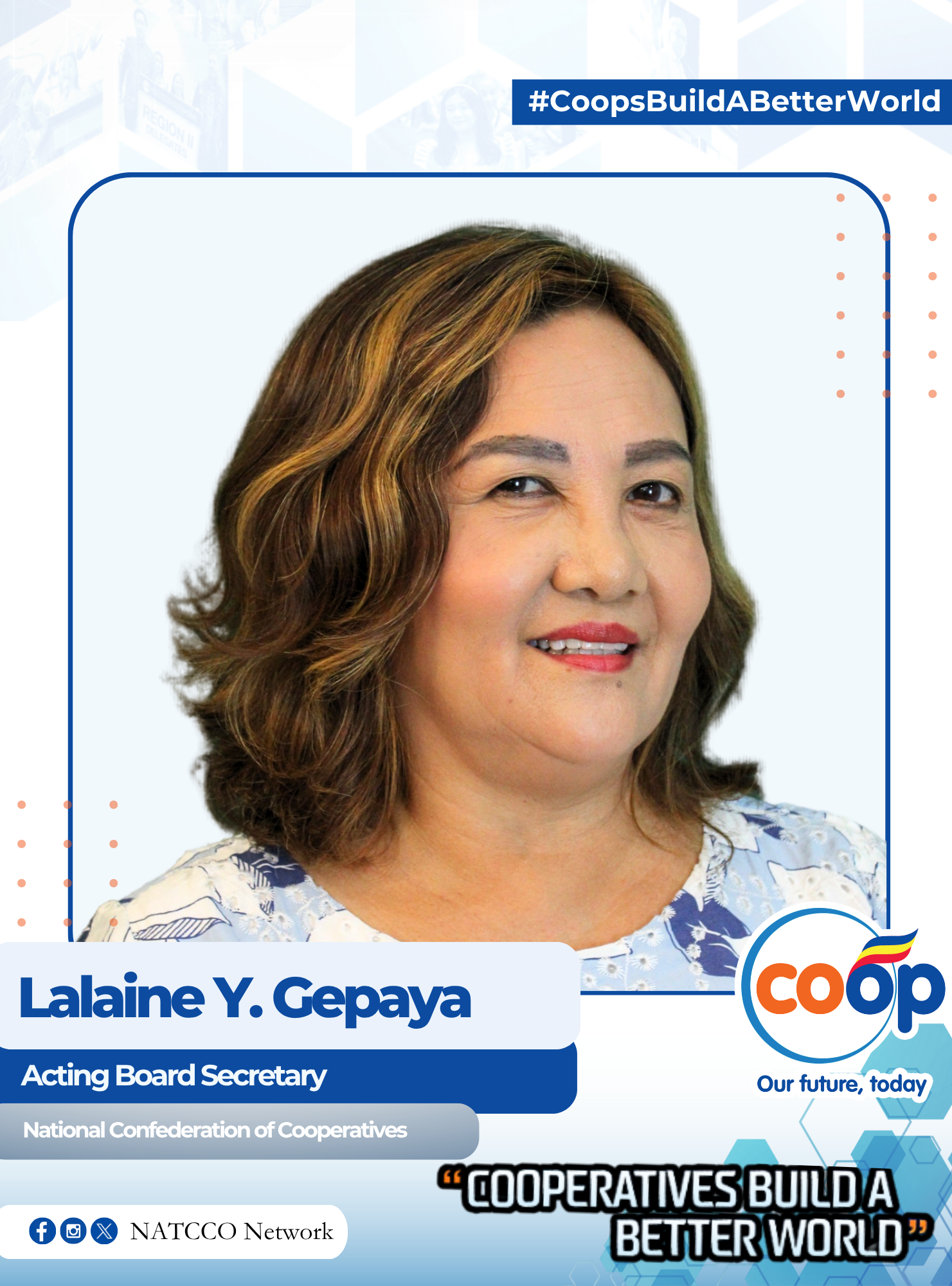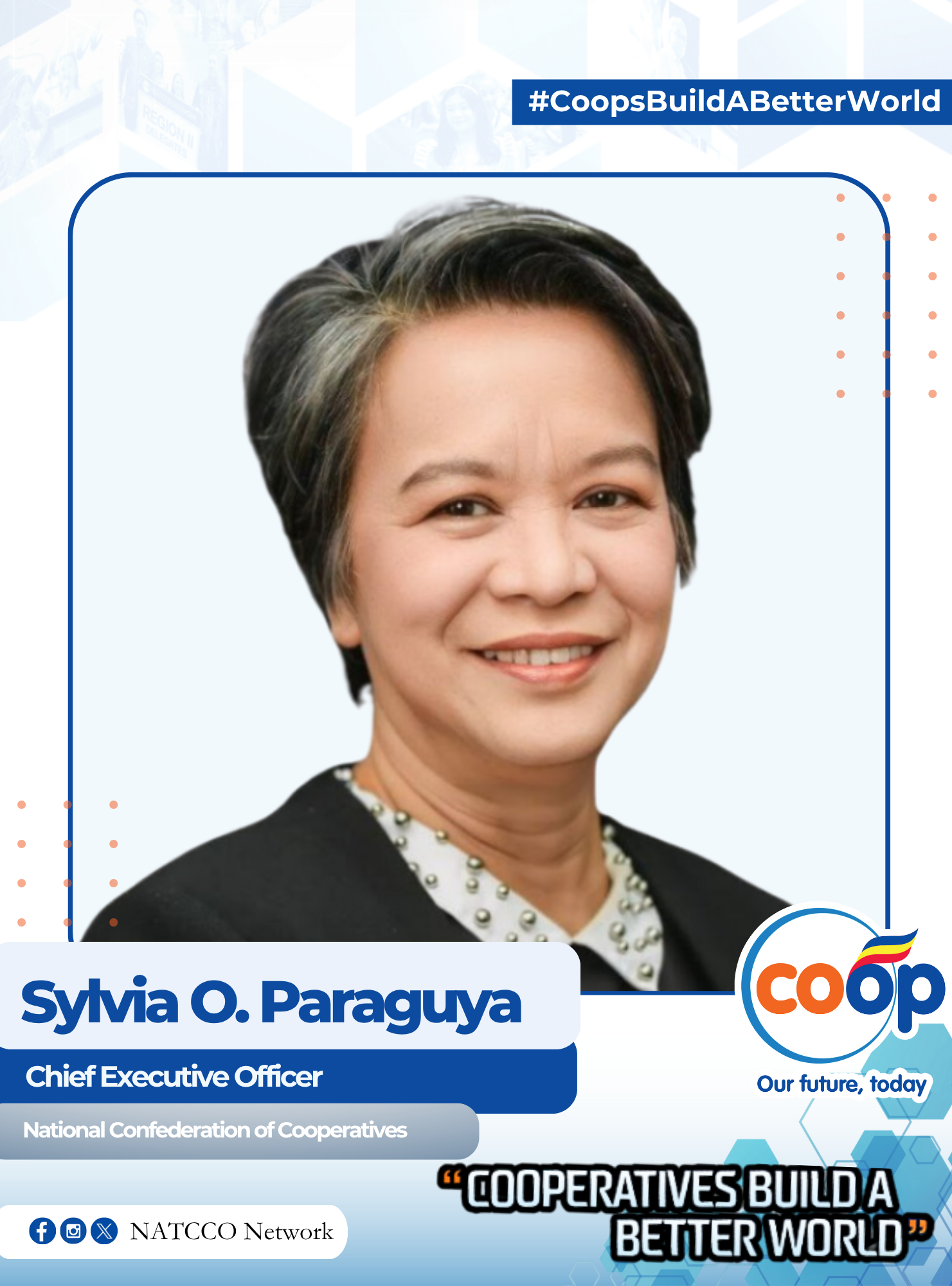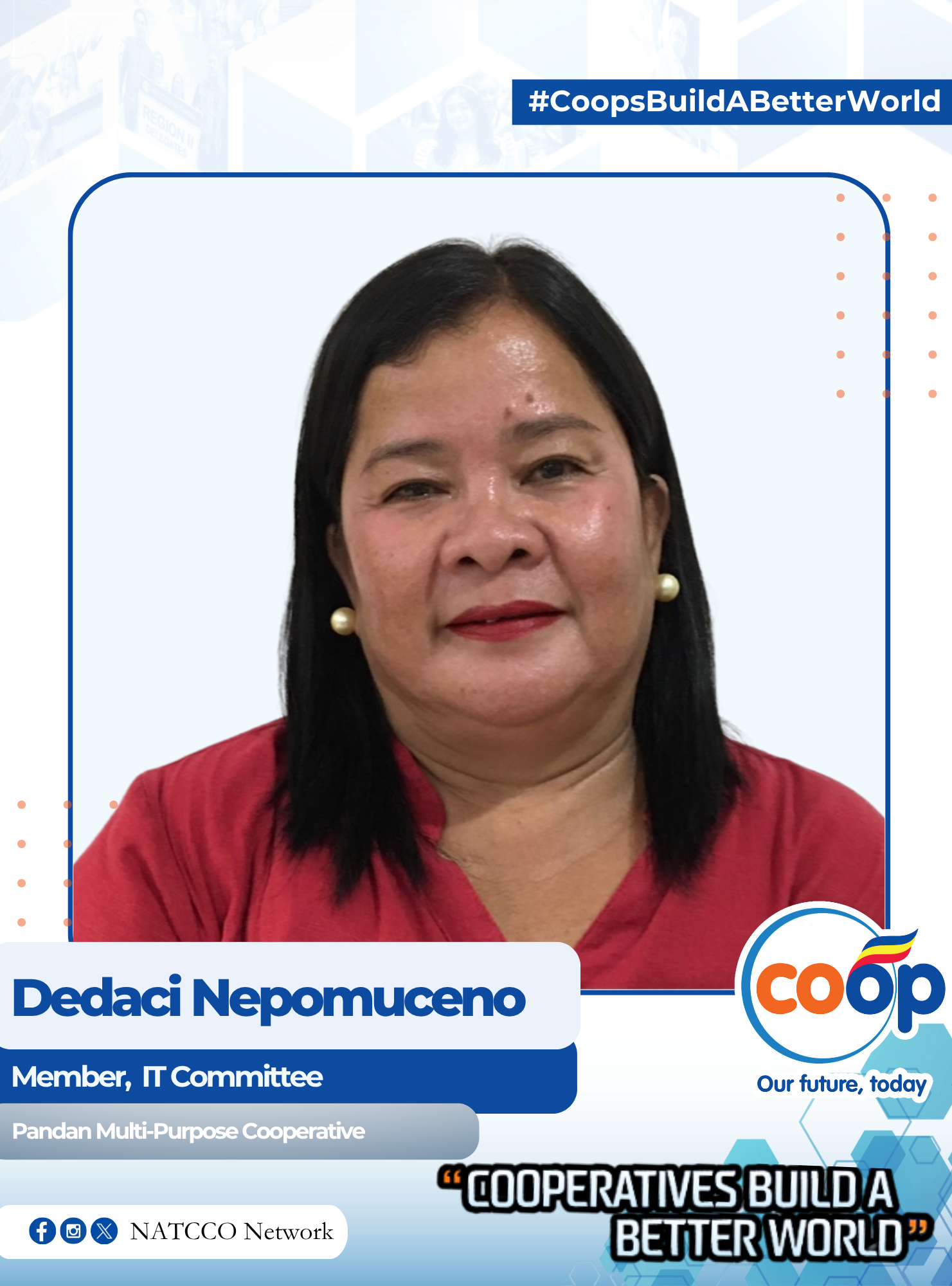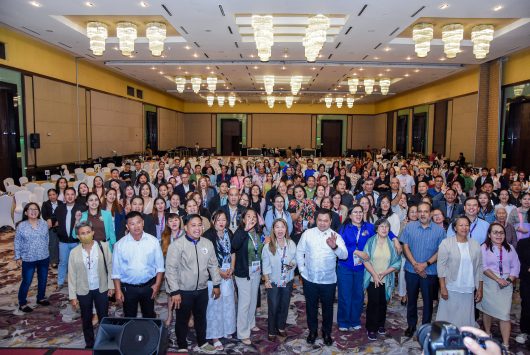
When people co-operate, they can create opportunities to improve their lives and their communities.
The National Confederation of Cooperatives (Formerly known as National Association of Training Centers for Cooperatives or NATCCO) was formed by co-operators who believed that the task of co-op development lay primarily in the hands of the private sector. These leaders believed in self-help and in the idea that through co-operation, people can create opportunities for themselves to improve their socio-economic well-being.
Our History
Today, NATCCO is the biggest federation of co-ops in the Philippines, in terms of geographical reach, membership, financial capacity and array of services. It now reaches around 5.1 million individual members coming from 812 co-ops and NGOs. The 5.1 million individual members are served through 1,975 offices located in 77 provinces and 129 cities all over the country. They are also served by more than 70 ATM branches of the Network. The 812 cooperatives have combined assets of more than P150 Billion.
The NATCCO Network, in endeavoring to ensure the sustainability/viability of co-ops, invests heavily in Information Technology software, hardware, and services that co-ops can acquire and use at the most reasonable cost. The key idea was to automate and standardize co-op operations. eKoopBanker is NATCCO’s premiere financial software designed for co-ops, launched in 2005 and used by more than 250 co-ops today.
NATCCO’s latest offering is the KAYA Payment Platform, in partnership with the Association of Asian Confederation of Credit Unions and the Philippine Federation of Credit Cooperatives (PFCCO), where co-op members can transact using their smart phones anytime-anywhere, through ATMs, and over-the-counter.
The NATCCO still remains true to its commitment that education is the key to co-op development and offers Training & Consultancy in every area of co-op operations.
The core service of the NATCCO Network has been financial intermediation since 2002, when the Central Fund was re-launched. Initial Deposits from co-ops amounted to P61.6 Million. In 2004, Deposits reached P225.7 Million. As of end-2018, Deposits stood at P2.26 Billion.
The Stabilization Fund System was launched in 2008. Patterned after the Korean, Canadian and German models, the system provides inspection, supervision, diagnosis and financial assistance to prevent co-op insolvency.
NATCCO’s local development partners include government institutions like the Cooperative Development Authority, Department of Agrarian Reform, Department of Education, Dept. of Social Welfare & Development, Land Bank of the Philippines, National Anti-Poverty Commission, Technical Education & Skills Development Authority (TESDA), Commission on Filipinos Overseas, and National Agricultural & Fishery Council.
Civil Society partners include The Partnership for Development Assistance in the Philippines (PDAP), Peace & Equity Foundation (PEF), Philippine Commission on Women, and Foundation for a Sustainable Society, Inc. (FSSI).
Affiliation with the Caucus of Development NGO Networks (CODE-NGO) is maintained actively.
Other local partners are Bayan Academy and BancNet ATM consortium, Ateneo School of Government, Bayan Academy, and Center for Humanitarian Learning & Innovation.
International partners include Aflatoun Child Savings International in Netherlands, Asian Women in Co-operative Development Forum (AWCF) in Bangkok, Asia Society for Social Improvement & Sustainable Transformation (ASSIST), Bank IM Bistum Essen in Germany, Proxfin, Canada Fund for Local Initiatives, Canadian Co-operative Association, Citi Foundation, Deutscher Genossenschafts und Raiffeisenverband e. V. in Germany, Desjardins Developpement International in Canada, Rabobank Foundation, Agriterra and Oikocredit in the Netherlands; German Cooperative and Raiffeisen Confederation (DGRV), Software Group in Singapore, Temenos in Bulgaria, WE EFFECT in Sweden, and Coca-Cola (Philippines).
The NATCCO Network is an active member of the Philippine Cooperative Center as the apex organization of co-ops in the Philippines, the Association of Asian Confederation of Credit Unions (ACCU) in Bangkok, Thailand since 1979, and International Cooperative Alliance (ICA) based in Brussels, Belgium since 2000.
Thus, as an active member, the NATCCO Network lives and promotes the ten internationally-accepted Cooperative Values of Self-Help, Self-Responsibility, Democracy, Equality, Equity, Solidarity, Honesty, Openness, Social Responsibility, and Caring for Others. The NATCCO Network abides by the international Cooperative Principles of Open & Voluntary Membership, Democratic Member Control, Member Economic Participation, Autonomy & Independence, Cooperation Among Cooperatives, Concern for the Community, and Education, Training & Information.
The NATCCO Network is committed to help co-ops in achieving the ICA’s 2020 Vision as well as the United Nations 2030 Sustainable Development Goals.
Advocacies pushed by the NATCCO Network, aside from Co-op Principles and Values, are Climate Change Adaptation, Disaster-Readiness of Communities, Financial Literacy, Gender & Development, Financial Inclusion, Youth Development, Inclusion of Persons with Disabilities, and Social Performance.
Our Mission
To build safe and sound cooperatives
that provide quality financial products and
services to uplift the quality of people’s lives
Our Vision
An Integrated Network of Cooperatives
Our Core Values
With faith in God, We Adhere to:
Innovation Commitment Teamwork & Solidarity Integrity Excellence
Cooperative Pledge
As a Filipino I am and I believe in the Cooperative.
Alone I am weak, But with others I am strong.
So I commit myself to work To cooperate, for all to be prosperous.
Harmony, industry I will value. Cooperative affairs I will attend,
Responsibilities I will assume The cooperative philosophy I will live.
One vision,
One belief,
One feeling.
In cooperativism, my life I pledge,
So help me God.
Board of Directors
NATCCO’s intellectual capital based on one’s own and others best practices.
“COOPERATVES BUILD A BETTER WORLD“
Committee Members
NATCCO’s intellectual capital based on one’s own and others best practices.
“COOPERATVES BUILD A BETTER WORLD“








